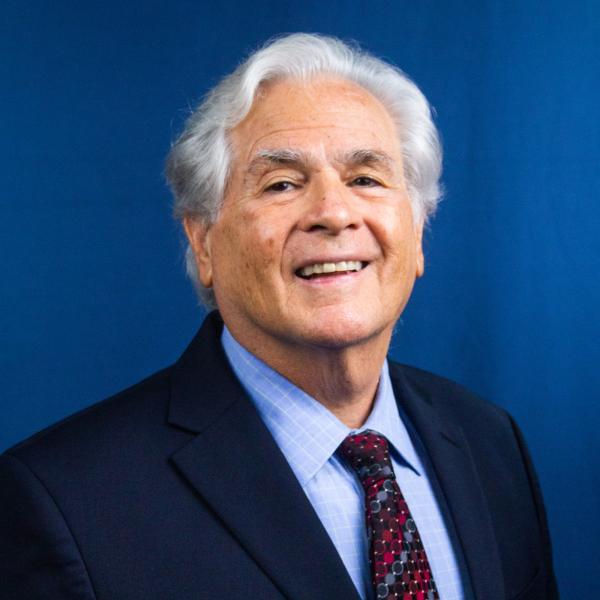Nicolás Kanellos
National Humanities Medal
2023


When Nicolás Kanellos started reading as a child, he had luminously naïve experiences. The University of Houston professor and the founder and director of Arte Público Press grew up in a working-class family in Jersey City and collected books bit by bit, throughout the late 1950s and early 1960s. His father, a Greek immigrant and restaurant worker, would accept scattered volumes from bindery factory workers, who would offer novels by Steinbeck, Hemingway, and Maugham in exchange for a free meal. Nicolás would devour these books, cherishing even the random volumes of the Encyclopedia Americana brought by the workers (“I had like, 3 Ds and no F!” he said). Soon, he started going to the bindery trash containers to pick up discarded signatures. He would fold them carefully and cut them down, figuring out how to make up a book. This intuition to discover a hidden meaning within these scattered experiences would follow him for most of his life, helping him become a public intellectual and pioneer of Hispanic and Latino studies.
At seventy-nine, Kanellos is considered one of the greatest champions of Latino and Hispanic literature in the United States, although he comes from an era when it was a virtually unknown field. Born in 1945 in New York City’s Hell’s Kitchen, he moved with his family to New Jersey in 1950 and spent summers with tías and tíos in Puerto Rico. Although not surrounded by readers, Kanellos soon made his way into a library. Later, he studied Spanish at Fairleigh Dickinson University, where he received his bachelor’s degree in 1966, developed a serious interest in literature and drama, and then studied in Mexico City. After further travel in Europe, he returned to the U.S. and promptly started his doctorate at the University of Texas, where his passion for Latino literature overlapped with political activism and the Civil Rights Movement of the 1960s.
“Throughout my education, there was a notable absence of anything about Latinos in the United States, except for the period of the conquest, and that was usually followed by the Spanish black legend, which denigrated all things Spanish and Latino,” explained Kanellos. Inspired by the Civil Rights Movement generally and the Chicano Civil Rights Movement in particular, Kanellos started to do his own research, trying to find Latino authors and artists throughout history that would counteract this black legend. Soon, he had collected several voices and was teaching a course on Chicano literature at the university. This set him off in a long exploration for new materials, a restless effort to collect as many Hispanic voices as possible, going through historical newspapers and trying to discover new names and authors in the same way he tried to put books together as a child.
In the 1970s, Kanellos organized the first symposia of Chicano and Latino literature in the world. While his profile as an academic kept growing, he also founded several projects destined to circulate Latino literature for a wider public. In 1972, he started Revista Chicano-Riqueña (which eventually became the Americas Review) with Indiana University professor Luis Dávila. By 1979, while Revista Chicano-Riqueña had become assigned reading at several universities, he founded Arte Público Press, a longstanding powerhouse of Latino writing, which remains one of the most important presses of its sort today.
By the 1980s, other tenured Latino scholars were working alongside him. The press launched the Recovering the US Hispanic Literary Heritage in 1992, a program to locate, index, and publish lost Latino writings that date from the American colonial period through the mid twentieth century, commencing a long trajectory of what Kanellos called “recovery work”: the sometimes-complicated task of digging up manuscripts of old, forgotten voices, bringing them to light. Latino theater has been one of Kanellos’s abiding interests, having founded and directed several Chicano companies around the country.
The substantial presence of Latino literature in the U.S. and academia that Kanellos helped build is stronger than ever. Today, Arte Público publishes 25 books a year, and Kanellos continues to dream about what digital humanities might do to expand his mission of proliferating Latino literature in the United States.
—Julia Kornberg